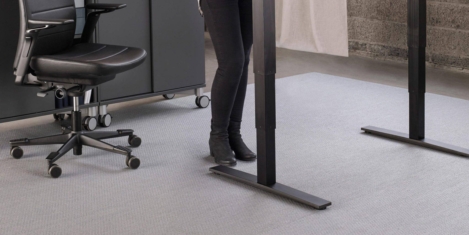October 17, 2017
Majority of workers are sleep deprived and stressed, negatively impacting their performance and wellbeing
 Over three quarters (77 percent) of British workers admit that having a bad night’s sleep negatively impacts their working day, with 27 percent claiming that they feel exhausted on a daily basis, according to a new study from jobsite CV Library. The study explored the attitudes of 1,300 workers around the topic of sleep and the workplace and was conducted with input from Neuroscientist Professor Jim Horne. The research claims that three quarters of Brits (74.5 percent) cite workplace stress as a key cause of their disrupted rest, with a further 92.5 percent admitting that a stress-related disrupted sleep negatively affects their emotions. What’s more, while the majority of workers (58.9 percent) would like to get 7-8 hours of sleep a night, only 26.1 percent currently achieve this, with most people (56.8 percent) actually receiving 5-7 hours. The research claims that sleep deprivation is most likely to affect an employee’s ability to stay focused (72.7 percent) as well as their ability to deal with challenging situations (46.5 percent) and make important decisions (34.2 percent).
Over three quarters (77 percent) of British workers admit that having a bad night’s sleep negatively impacts their working day, with 27 percent claiming that they feel exhausted on a daily basis, according to a new study from jobsite CV Library. The study explored the attitudes of 1,300 workers around the topic of sleep and the workplace and was conducted with input from Neuroscientist Professor Jim Horne. The research claims that three quarters of Brits (74.5 percent) cite workplace stress as a key cause of their disrupted rest, with a further 92.5 percent admitting that a stress-related disrupted sleep negatively affects their emotions. What’s more, while the majority of workers (58.9 percent) would like to get 7-8 hours of sleep a night, only 26.1 percent currently achieve this, with most people (56.8 percent) actually receiving 5-7 hours. The research claims that sleep deprivation is most likely to affect an employee’s ability to stay focused (72.7 percent) as well as their ability to deal with challenging situations (46.5 percent) and make important decisions (34.2 percent).
(more…)






























October 2, 2017
Time to start a new culture to tackle stigma on mental wellbeing issues in the workplace
by Kate Cooper • Comment, Wellbeing
(more…)